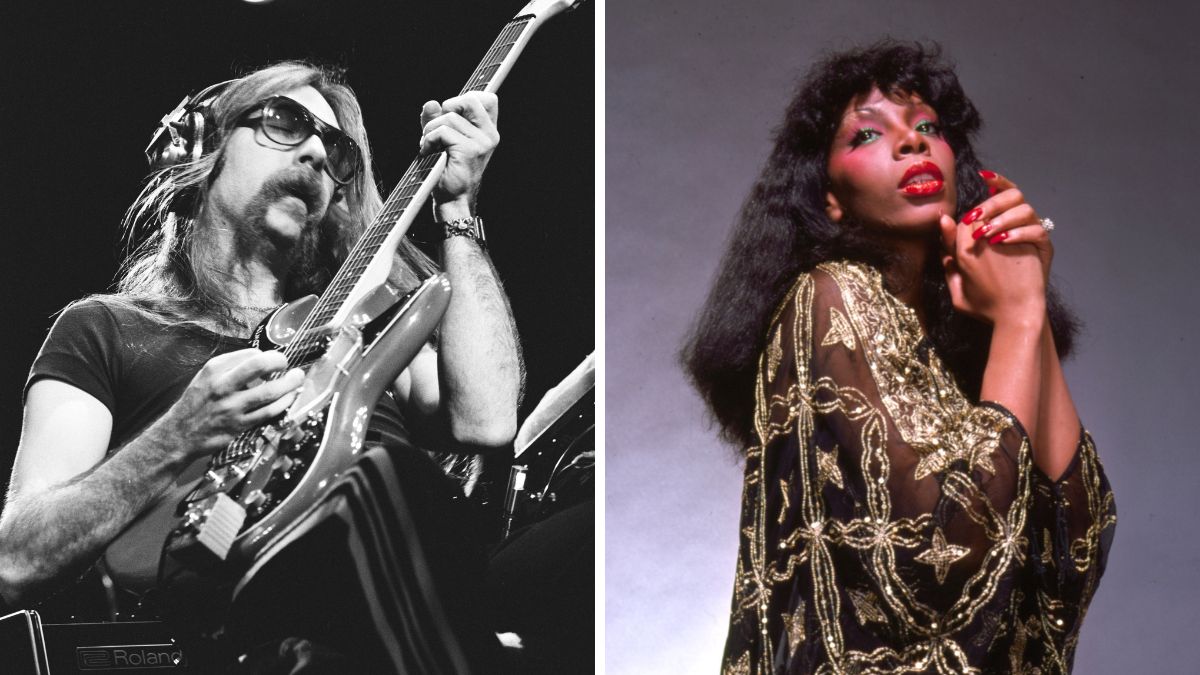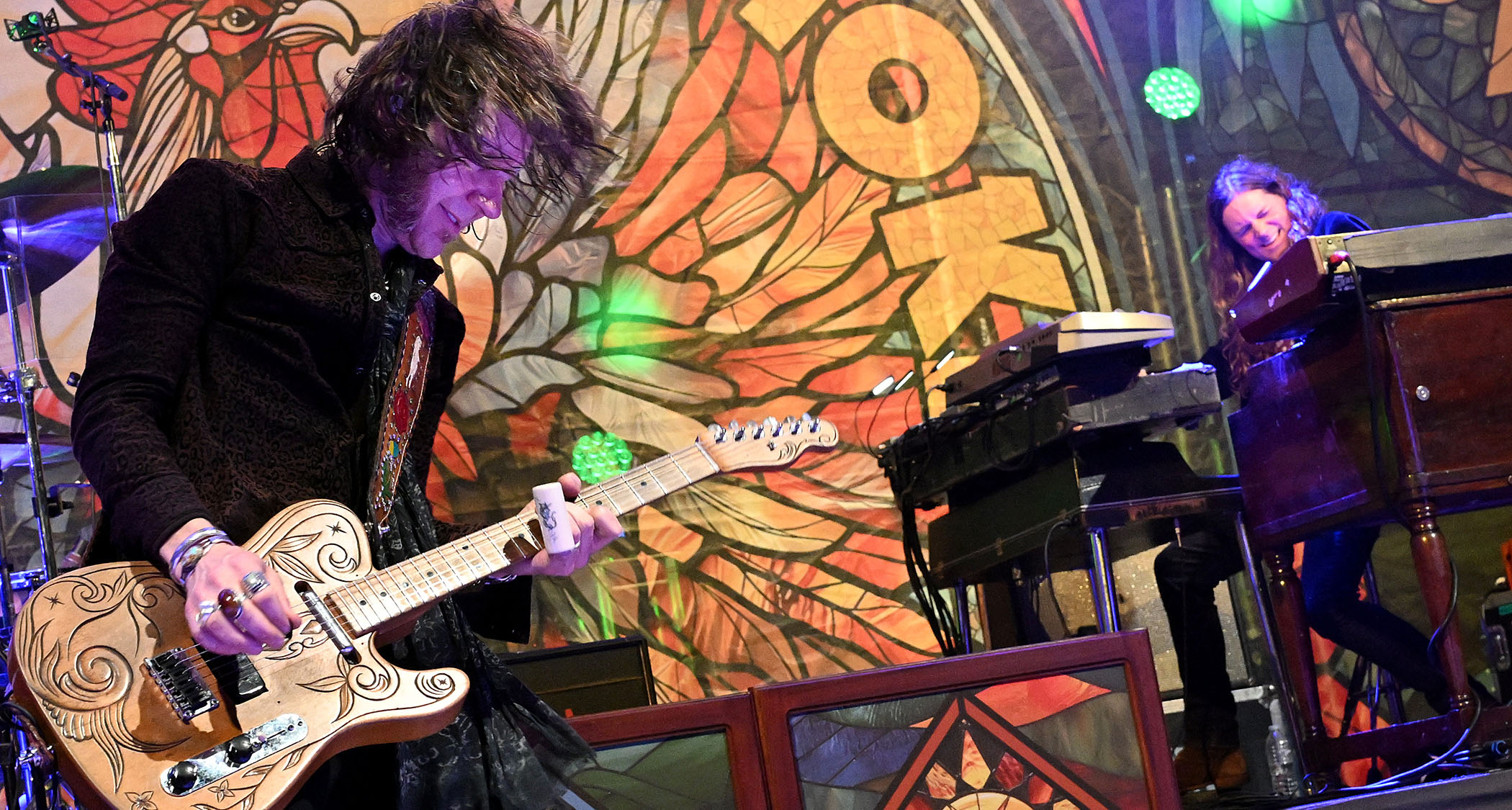“I gave him 35 bucks for the guitar, bought a six-pack of Bud, went down to the studios and they played me the song. Recorded it in one take”: Skunk Baxter on how he recorded his classic Hot Stuff solo on a cheap guitar he bought right before the session
Baxter reveals he very nearly didn't do the Donna Summer session – and how the producer's willingness to experiment clinched the deal

All the latest guitar news, interviews, lessons, reviews, deals and more, direct to your inbox!
You are now subscribed
Your newsletter sign-up was successful
The blazing guitar solo on Donna Summer's Hot Stuff signified a new direction for the disco star – one that was more rock-oriented, allowing the Queen of Disco to successfully dip into new genres. However, that solo almost didn't happen, as ex-Doobie Brother and Steely Dan guitarist Jeff “Skunk” Baxter nearly missed the call.
“My assistant said, ‘Oh, I forgot to tell you. This guy, Giorgio Moroder [esteemed Italian producer credited with pioneering Euro disco], called.’ I said, ‘What kind of music is it?’ ‘He said it's disco,’” Baxter tells Vertex Effects.
He admits that, initially, he wasn't keen on the session, as he and Jay Graydon, the Grammy Award-winning guitarist, songwriter, and producer, had already conquered the disco genre.
“I mean, it was getting to the point, not to be snotty about it, but Jay and I, we get together on a Monday and decide what riff we're going to play for the whole week. So I said, ‘Call Jay.’ And so she called Jay and he said, ‘Nah, call Skunk.’ So I said, ‘Okay, I'll do the session.’”
Baxter only agreed if they let him play something different. Luckily, Moroder agreed as, according to the guitarist, “he wanted to move Donna into more of a rock vein.”
There was another critical obstacle, however. Baxter was moving house and didn't have a guitar at hand. “I went down to a Guitar Center. Paul Herman was the manager down the one in Hollywood. I said, ‘Paul, I need a guitar now.’
“He laughed and pointed to a box in the middle of the store with, ‘Buy me. 25 bucks.’ Had a bunch of weird guitars and it had a Burns Baby Bison with five regular tuning pegs, and somebody put a Gibson tuning peg on.”
All the latest guitar news, interviews, lessons, reviews, deals and more, direct to your inbox!
Baxter continues, "And so I picked it up, plug it in, play. I gave him 35 bucks, bought a six-pack of Bud, went down to Rusk Studios, and they played me the song. I said, ‘Fine.’ There was a [Fender] Deluxe Reverb already there. Turned everything up to 10, plugged the guitar, and said ‘Roll [the] tape.’ That was it. It was one take.”
Jeff ‘Skunk’ Baxter had previously told the tale in a career-spanning interview with Guitarist magazine, where he discussed recutting his classics, mad-scientist modding and hustling Guitar Center for parts in the ’70s.
Elsewhere in the Vertex piece, the star session guitarist talked about recording guitar on Dolly Parton's mega-hit 9 to 5, an opportunity that came about due to Hot Stuff's success.
Janelle is a staff writer at GuitarWorld.com. After a long stint in classical music, Janelle discovered the joys of playing guitar in dingy venues at the age of 13 and has never looked back. Janelle has written extensively about the intersection of music and technology, and how this is shaping the future of the music industry. She also had the pleasure of interviewing Dream Wife, K.Flay, Yīn Yīn, and Black Honey, among others. When she's not writing, you'll find her creating layers of delicious audio lasagna with her art-rock/psych-punk band ĠENN.



